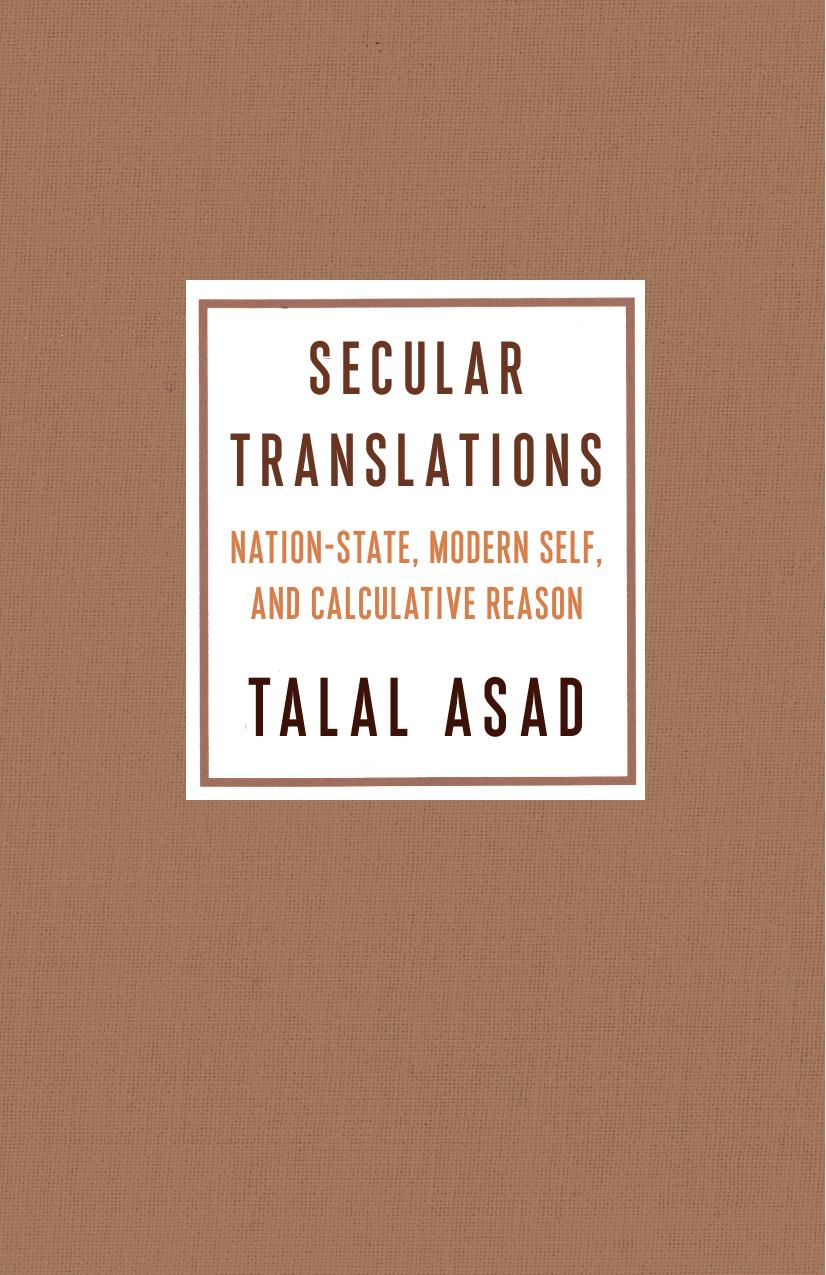Secular Translations: Nation-State, Modern Self, and Calculative Reason by Talal Asad

Author:Talal Asad
Language: eng
Format: epub, pdf
Tags: Philosophy, Political, Religion, Social Science, Anthropology, Cultural & Social
Publisher: Columbia University Press
Published: 2018-12-04T00:00:00+00:00
IV
I want now to think further about the tension between the private self and its public mask in the context of political uncertainty. Masks are not simply devices for announcing one’s persona to the world: they also hide secrets and offer themselves as misleading signs to be read by one’s opponents. But the interpretation of signs is not entirely controllable by the mask’s wearer: the reader may have his own agenda. So what might Mauss’s notion of the mask tell us about relationships between the modern state and its free and equal citizens? It is often remarked that liberals mistrust power and that this is the source of liberal distrust of democracy. The state has reasons for mistrusting citizens—for suspecting that the law may be dangerously violated or that the power of the people may lead to undesirable consequences. But power is not merely an instrument for defending citizens; it is ultimately the state’s very reason for existing.
Treason as a crime against the modern state is, so we might suppose, entirely a pragmatic, secular affair. And although personal betrayal is an ancient theme, the attachment of treason to the nation-state is relatively new. After all, if the state is seriously endangered, the collective life it enables may also be undermined. But that practical concern doesn’t fully explain the powerful emotions expressed in the discourse of political leaders and ordinary citizens confronted by treason. The state crime of treason is not defined in terms of damage inflicted by the traitor to national interests; what matters above all is giving “aid and comfort to the enemy.” The U.S. Espionage Act of 1917, for example, does not require proof of “material harm” when deciding guilt. Pointing to treason tends to provoke anxiety and revulsion, a feeling that something deserving reverence has been besmirched, and a desire to inflict severe punishment on the traitor who has deceived not only the state but the nation, which the state symbolizes. As long ago as the eighteenth century, Jean-Jacques Rousseau articulated ideologically the ruthless necessity of exercising state power in the form of “the Terror” during the French Revolution: “every malefactor, by attacking social rights, becomes on forfeit a rebel and a traitor to his country; by violating its laws he ceases to be a member of it; he even makes war upon it. In such a case the preservation of the State is inconsistent with his own, and one or the other must perish; in putting the guilty to death, we slay not so much the citizen as the enemy.”26 In other words, the use of terror by the state against citizens who are hidden or discovered enemies is not merely justified because it is necessary for the state’s survival; it is morally required because it addresses the security of the lives and properties of its citizens.27 It is not that treason consists in breaking the law; violating the country’s law is what traitors do.
These reactions suggest that treason is felt to resemble what the secular
Download
Secular Translations: Nation-State, Modern Self, and Calculative Reason by Talal Asad.pdf
This site does not store any files on its server. We only index and link to content provided by other sites. Please contact the content providers to delete copyright contents if any and email us, we'll remove relevant links or contents immediately.
The Lost Art of Listening by Michael P. Nichols(7488)
Why I Am Not A Calvinist by Dr. Peter S. Ruckman(4148)
The Rosicrucians by Christopher McIntosh(3509)
Wicca: a guide for the solitary practitioner by Scott Cunningham(3166)
Signature in the Cell: DNA and the Evidence for Intelligent Design by Stephen C. Meyer(3125)
Real Sex by Lauren F. Winner(3013)
The Holy Spirit by Billy Graham(2943)
To Light a Sacred Flame by Silver RavenWolf(2813)
The End of Faith by Sam Harris(2733)
The Gnostic Gospels by Pagels Elaine(2527)
Waking Up by Sam Harris(2454)
Nine Parts of Desire by Geraldine Brooks(2357)
Jesus by Paul Johnson(2352)
Devil, The by Almond Philip C(2324)
The God delusion by Richard Dawkins(2305)
Heavens on Earth by Michael Shermer(2278)
Kundalini by Gopi Krishna(2180)
Chosen by God by R. C. Sproul(2160)
The Nature of Consciousness by Rupert Spira(2095)
